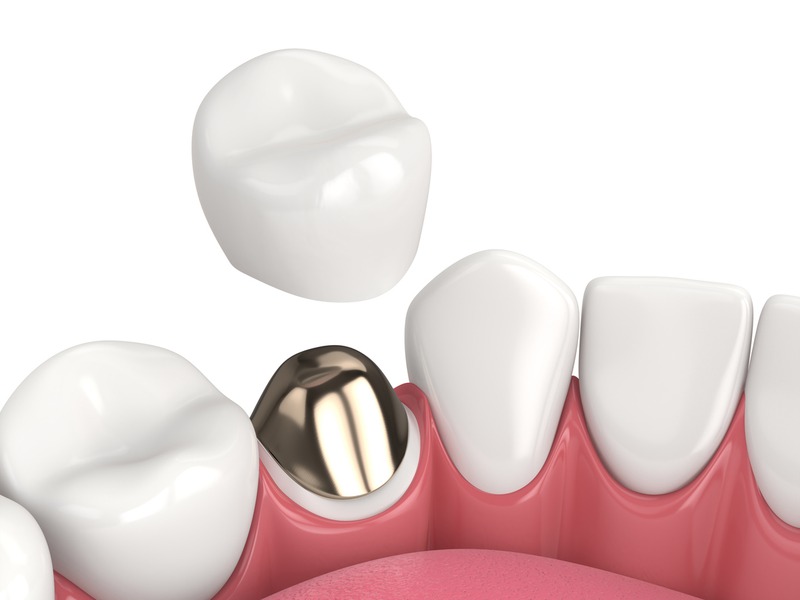How Effective Are Dental Crowns in Restoring Tooth Function?

When you think about dental crowns, what comes to mind? For many, it’s their ability to restore both the appearance and function of teeth. Dental crowns are indeed one of the marvels of modern dentistry. But how effective are they truly in getting our chompers back in working order? Let’s take a closer look at this topic.
What Are Dental Crowns?
Before discussing their effectiveness, it helps to understand dental crowns. Essentially, a dental crown is a cap placed over a damaged tooth. It can be made from different materials, such as metal, porcelain, resin, or ceramics. Crowns are designed to restore the tooth’s shape, size, and strength and can dramatically improve its appearance.
Types of Dental Crowns
There are different types of dental crowns available, each with its own set of advantages. Some common types include:
-
Metal Crowns: These are highly durable and perfect for out-of-sight molars.
-
Porcelain Crowns: Ideal for restoring front teeth because they mimic the natural tooth’s appearance.
-
Resin Crowns: A cost-effective option, though not as long-lasting.
-
Ceramic Crowns: Similar to porcelain crowns, they are known for their natural look and high resistance to wear.
Why Might You Need a Dental Crown?
Dental crowns can be an effective solution for a variety of dental issues. These include:
-
Large Cavities: When a cavity is too large for a filling, a crown may be necessary.
-
Fractured Teeth: Crowns can help salvage a cracked or broken tooth.
-
Post-root Canal Protection: Following an endodontic treatment, a crown may be placed to protect what remains of the tooth.
-
Cosmetic Enhancements: For those seeking aesthetic improvements, crowns can offer a transformed smile.
How Effective Are Dental Crowns in Restoring Function?
Dental crowns are quite effective in restoring tooth function. When a tooth is damaged, it can affect how you chew and speak. A well-placed crown not only protects the tooth from further harm but also restores its functionality. Unlike other dental fixes, crowns offer a comprehensive solution that addresses several issues at once.
Durability and Longevity
One significant benefit of dental crowns is their durability. With proper care, high-quality crowns can last anywhere from 5 to 15 years, sometimes even longer. This longevity makes them a great investment in dental health.
Aesthetic Appeal
For those concerned with aesthetics, porcelain and ceramic crowns offer a natural, tooth-like appearance. This means that while they restore function, they also keep your smile looking its best. Additionally, consulting an Invisalign dentist can provide options to align your teeth discreetly, enhancing the overall appearance of your smile.
Preparation and Placement
The process of getting a dental crown usually involves multiple steps. Initially, the dentist will examine the tooth and prepare it by removing any decay and shaping it to fit the crown. An impression is made, and a temporary crown might be placed while you wait for the permanent one.
Once the permanent crown is ready, it’s placed over the tooth and cemented securely. An experienced dentist plays a crucial role here, ensuring the crown fits well and functions perfectly.
Dental Crowns vs Other Restorations
When comparing crowns to other forms of dental restorations, such as fillings or veneers, crowns offer a unique blend of strength and aesthetics. They are capable of withstanding the forces of biting and chewing more effectively and are a full-coverage option compared to partial solutions like veneers.
Crowns vs Fillings
Fillings are great for smaller cavities, but when a tooth is too compromised, a crown provides comprehensive protection and can restore the tooth to full function.
Crowns vs Veneers
Veneers are typically used for aesthetic purposes and cover only the front surface of a tooth. Crowns, on the other hand, encase the entire tooth, providing more robust protection.
Considerations and Aftercare
While dental crowns are effective, it’s important to follow proper aftercare. Good oral hygiene is essential. This means regular brushing, flossing, and dental check-ups. Avoiding hard foods that can crack the crown is also advisable.
Potential Complications
Though rare, complications like sensitivity, discomfort, or even loosening of the crown can occur. It’s important to consult your dentist if these issues arise.
Costs and Insurance
The cost of dental crowns can vary based on the material chosen and the dentist’s expertise. While some insurance plans cover crowns, it’s crucial to check with your provider for specifics.
The Role of Dental Professionals
Selecting the right dental professional is key to a successful outcome. Whether you’re working with a general or a specialist dentist, their expertise will guide the process. They’ll help plan and execute the crowning, ensuring it meets both functional and aesthetic needs.
Final Thoughts
Dental crowns are powerful tools in restorative dentistry. They provide structural support for weakened teeth and restore the function and beauty of your smile. Whether you’re dealing with a fractured tooth or seeking aesthetic improvements, crowns can offer a lasting solution. Always consult a trusted dental professional to determine the best approach for your individual needs.



